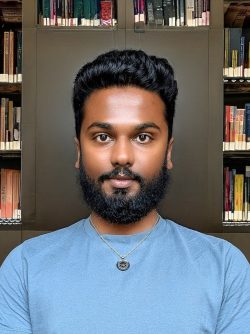We are pleased to announce that the ESRC SCDTP has been awarded four Postdoctoral Fellowships for the 2025/2026 academic year. These prestigious fellowships offer an excellent opportunity for early-career researchers to further develop their independent research careers and enhance their skills in a supportive environment.
For more detailed information about the scheme, please visit our ESRC SCDTP Postdoctoral Fellowship Scheme page, where you’ll find all the relevant criteria, deadlines, and application guidelines.
We are excited to introduce our current cohort of Postdoctoral Fellows for the 2025/2026 year, which you can view below. You can also explore the achievements and research projects of our previous fellows by visiting the 2022/2023 cohort page, the 2023/2024 cohort page, and the 2024/2025 cohort page.
Should you have any questions or require further information, please don’t hesitate to get in touch. We’re here to help and look forward to supporting the continued success of our fellows.
Danyang is an ESRC Postdoctoral Fellow at the Centre for Research on Self and Identity, School of Psychology, University of Southampton. Her fellowship builds on the findings of her doctoral research, which used attachment-related (close emotional bonds with important others) experiments and attribution-related (how people explain causes) principles to better understand romantic relationship quality. Her work contributes to integrating attachment security enhancement with cognitive restructuring techniques — ultimately aiming to help individuals build healthier and more secure relationships.
During the fellowship, Danyang will continue to explore the mechanisms linking early-life attachment experiences to future relationship outcomes. She will also actively seek collaboration with national relationship organisations or online platforms to adapt her newly developed and published Hostile Attribution Bias scale into a practical self-assessment toolkit. This resource will be freely available to both research and clinical communities.
Know more about her work: here
Mohamed Ismail Abdul Kader is an ESRC Postdoctoral Fellow at the University of Portsmouth, School of Psychology, Sport and Health Science. His research examines how human movement such as walking, dancing, and gesture influences social perception, including judgments of attractiveness, competence, warmth, and threat. Using advanced motion-capture methods, he has developed one of the largest open-access databases of dynamic human movement, enabling interdisciplinary applications in social, evolutionary, and forensic psychology.
Ismail completed his PhD in Psychology at the University of Portsmouth, where he received recognition for his innovative research on dynamic cues and social evaluation. Through his fellowship, he will publish and disseminate this work, extend it to forensic contexts (e.g., threat perception and eyewitness identification), and foster collaborations across psychology, robotics, and ageing research.
Sayaka is an ESRC Postdoctoral Fellow in the Department of Sociology, Social Policy and Criminology at the University of Southampton. Sayaka is a sociologist who investigates processes of migratisation, or the construction of some people – and not others – as migrant outsiders. Her work highlights the shared struggles between “citizens” and “migrants” alike, and the need for collective commitments to antiracism and social justice across civil society.
During her fellowship, Sayaka will build on her doctoral research by disseminating her findings widely, including publishing articles in leading academic journals, developing her PhD thesis into a monograph and presenting her work at key sociological conferences internationally.
Working with PublicPolicy@Southampton and the Centre for Higher Education Practice, Sayaka will enhance the impact of her research through public engagement with policymakers and other users of her research. She will also pursue research leadership training in preparation for her next research project.
Dr. Stu Lucy is based in the School of Criminology and Criminal Justice at the University of Portsmouth. His research focuses on the journey young and adolescent men take into the incel community and the possible interventions that can be implemented to assuage this trend.
Stu has published in Men and Masculinities and Routledge handbooks on Online deviance. He is currently working on a solo book, How to Make an Incel, which focuses on his PHD research, a co-authored book reviewing problematic contributions to the field, as well as several supplementary articles spanning sociology, gender theory, and media and communications disciplines.

